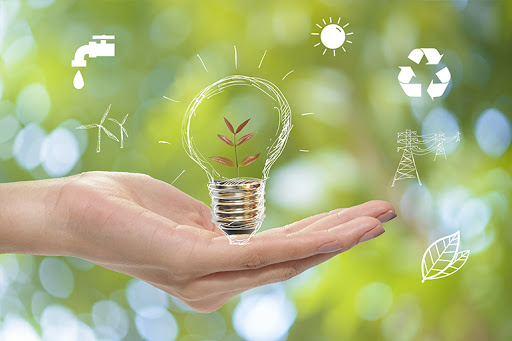VISION FOR THE ANTHROPOCENE || We must develop pro-environmental habits

My vision for the Anthropocene is for us all to develop pro-environmental habits. For us to be able to ‘do the right thing by the environment’ without having to think about it. How are we, both as individuals and as a society, going to achieve this goal?
Up until a few months ago my morning coffee routine was well-established: grab my re-useable cup, walk to my favourite campus coffee vendor and order a large long-black. But then the pandemic struck: re-useable cups became undesirables and a simple behavioural change that had become a habit (“No cup, no coffee”) was broken.
The study of habitual behavior has a venerable tradition in Psychology. Over the years we’ve learned a lot about the way habits are acquired and lost, and about the way our brain changes as we learn. A habit refers to a process in which situations prompt actions to occur automatically. The basic idea is that if we have enough experience of pairing a given situation (wanting a coffee) with a given action (grabbing my re-useable-cup) then eventually that action comes naturally, with minimal cognitive effort.
My vision for the Anthropocene is for us all to develop pro-environmental habits. For us to be able to ‘do the right thing by the environment’ without having to think about it. How are we, both as individuals and as a society, going to achieve this goal?
One potential pathway is to make the pro-environmental choice the easy choice. If habits are behaviours that need minimal cognitive effort, then let’s take the effort away from choosing. This is the rationale behind ‘nudging’ people to engage in a desired behaviour. A nudge is a gentle suggestion aimed at influencing choice. Think of your energy company defaulting you in to a green energy plan, or an airline automatically adding a carbon-offset fee to your ticket price. These options are not mandatory and nothing is stopping you from switching away from the default, or unchecking the box – but to do so requires (mental) effort.
Such seemingly small changes to the “choice architecture” can have huge impacts. A trial in Germany found that setting the default choice to automatic enrollment in green power (while still allowing households to opt out) resulted in a 10-fold increase in green power contracts. But nudges can only ever be part of the solution.
For one thing, in order to establish a pro-environmental habit, we need to be nudging the right pro-environmental behavior. And who decides what is right? Who determines whether it is the green or the grey energy that is set as the default option? Can we rely on others to choose the right settings and absolve us of this need to think?
Such a thinking-free utopia seems unlikely. The environmental concerns of the Anthropocene too often lag short-term goals of expediency and unrelenting economic growth. If we are not only to survive but thrive in the Anthropocene then we need to become the architects of our own decision environments. We need to nudge – or shove – ourselves into developing the right habits.
We need (to borrow a term from the scholars Samuli Reijula and Ralph Hertwig) to become ‘citizen architects’. We need to take the driver of behavior change away from the paternalistic policymaker or practitioner and empower ourselves to make changes. Perhaps by making people aware not only of the tricks that behavioural scientists use to change behavior, but also the psychological mechanisms that make those tricks work, we will be better equipped to be the architects of our own new habits.
Simple rules that facilitate the habit you want to encourage are a good place to start: IF I want a coffee, THEN I grab my re-useable cup. In essence, such IF-THEN rules, or implementation-intentions create the mental association between the desired behavior and a future situation. And by making it explicit, they help the automatic, habitual, response to emerge over time.
These simple rules, and explanations of how they work psychologically, can be combined with information about why the intended behavior is desirable environmentally. We all know why single-use cups are not great, but do we know how many get thrown away each year? (A billion in Australia alone). We all know that we emit CO2 every time we drive a car – but do we know how much? (About 120g per kilometer driven).
The point of providing this kind of information is not to guilt us all in to becoming hermits in hessian sacks. Rather, it is in the hope that once we realize the collective impact of simple actions, and have the psychological tools at hand to turn those actions into habits, we can begin to gain the behavior-change momentum we so urgently need.
And of course it cannot all be left to us as individuals. The kinds of societal, global change that the Anthropocene necessitates will only be achieved via fundamental policy reforms. The Green New Deals being debated in the US, UK and Europe, or the Wellbeing Budget in New Zealand are pointing the way, but for such policies to gain support, the electorate needs to appreciate why such radical shifts are required.
IF we can start to be ‘citizen architects’ and nudge ourselves to make changes in those areas where we have some control – transport, food, energy, clothing – THEN our governments and markets will follow. The pandemic has provided us with a pivotal moment – the status quo has been overthrown, and we are being forced to stop and think about how we live our lives. We must use this opportunity to develop new, pro-environmental habits.
For me, I’ve stopped drinking coffee (except when I am at home…)



